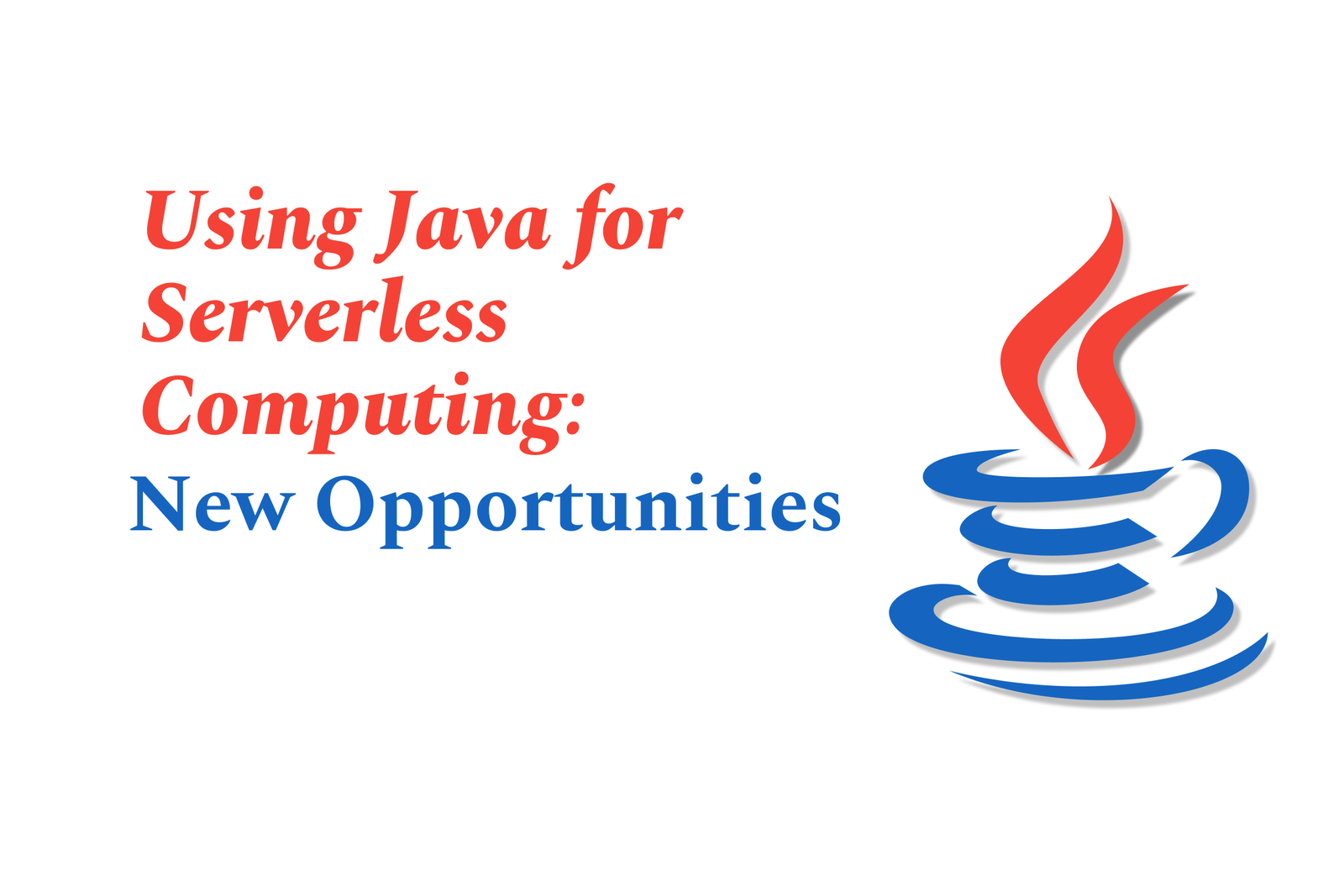Using Java for Serverless Computing: New Opportunities
Using Java for serverless computing unlocks new opportunities by combining Java’s robust ecosystem with scalable, event-driven cloud platforms. Enhanced performance and native support help developers build efficient, cost-effective, and scalable applications without managing infrastructure.
Using Java for Serverless Computing: New Opportunities
1 ) Introduction to Java in Serverless Computing
Java, traditionally known for enterprise applications, is emerging as a viable option in the serverless computing landscape. Serverless platforms automate infrastructure management, allowing developers to focus purely on writing code, which aligns well with Java's robust ecosystem.
2 ) Advantages of Java for Serverless Applications
Mature language with strong community support: Java’s extensive libraries and frameworks facilitate faster development.
Performance improvements: Recent enhancements in the JVM, such as GraalVM and support for native images, have reduced cold start times, addressing a common serverless concern.
Portability and compatibility: Java’s write once run anywhere philosophy enables seamless deployment across various cloud providers’ serverless services.
3 ) Serverless Platforms Supporting Java
Popular cloud providers like AWS Lambda, Google Cloud Run, and Azure Functions now natively support Java, providing:
Automated scaling to zero and beyond, optimizing resource usage and cost.
Event driven execution models that integrate well with Java microservices and REST APIs.
Payment models based on actual usage (pay per use), enhancing cost efficiency.
4 ) Use Cases and New Opportunities
Java’s integration with serverless computing opens doors to several innovative applications:
Developing scalable web applications and APIs without managing infrastructure.
Running batch data processing and parallel jobs efficiently.
Leveraging serverless GPUs for AI inference using Java based frameworks.
Implementing event driven functions that interact with third party services for complex workflows.
5 ) Challenges and Considerations
Java’s traditionally longer cold start time compared to lighter languages can impact latency sensitive applications, though optimizations exist.
Developers must adapt to stateless function paradigms and event driven design patterns for effective use of serverless Java applications.
6 ) Conclusion
Java presents promising new opportunities in serverless computing by combining its mature ecosystem with modern serverless platforms. Companies leveraging Java for serverless can achieve rapid development, scalability, and cost effective infrastructure management, making it a strong candidate for both new projects and modernizing existing applications.
https://justacademy.in/news-detail/flutter-adds-ai-toolkit:-what-it-means-for-developers
https://justacademy.in/news-detail/android-security-best-practices-updates
https://justacademy.in/news-detail/how-swiftdata-changes-persistent-storage-in-ios-apps
https://justacademy.in/news-detail/flutter-europe-2025-announcements
https://justacademy.in/news-detail/best-practices-for-ios-19-app-launch-optimization
Related Posts
In 2025, top Angular libraries offer modern, feature-rich components and tools for building dynamic web apps. From powerful data grids to low-code platforms like UI Bakery, these libraries enhance development speed, UI design, and scalability, making them essential for Angular developers.
Migrating from AngularJS to Angular 17 involves gradually upgrading your app by running both frameworks together using tools like ngUpgrade, rewriting components in TypeScript, and adopting Angular’s modern architecture to enhance performance, maintainability, and long-term support.
Angular state management tools help organize and handle app data efficiently, improving scalability and maintainability. Popular options include NgRx for robust, RxJS-based patterns, and newer Signal Store solutions that offer simpler, reactive approaches integrated tightly with Angular’s latest features.
RxJS in Angular empowers developers to manage asynchronous data streams with powerful operators like `forkJoin`, `combineLatest`, and `zip`. Mastering these key operators in 2025 is essential for building efficient, reactive applications that handle complex event sequences seamlessly.
Angular performance optimization in 2025 focuses on improving app speed and responsiveness by using techniques like OnPush change detection, lazy loading, efficient data caching, and AOT compilation. These practices reduce load times, enhance user experience, and ensure scalable, fast Angular applications.
In 2025, Angular remains preferred for large-scale, enterprise apps with its robust, all-in-one framework, while Vue attracts developers seeking simplicity and fast development for smaller projects. Both frameworks excel, with choice driven by project needs and team expertise.
Angular Signals are a new reactive primitive in Angular 16 that enable fine-grained, efficient change detection by automatically tracking dependencies and updating only affected parts of the UI. They simplify state management and boost app performance, revolutionizing Angular's reactivity model.
Angular interview questions to prepare in 2025 focus on core concepts like components, directives, data binding, routing, and dependency injection, along with TypeScript mastery and latest Angular features to ensure strong practical knowledge for building scalable, efficient web applications.
AngularJS reached its official end of support in January 2022, meaning no further updates or security patches. To ensure app security and performance, developers should consider migrating to modern Angular versions or seek third-party long-term support options if immediate migration isn’t possible.
The Angular Roadmap 2025 highlights upcoming features focused on improving developer experience and performance, including zoneless Angular, Signals integration, enhanced Forms, async data handling, improved HMR, and expanded Angular Material/CDK enhancements, driving modern, efficient web app development.










